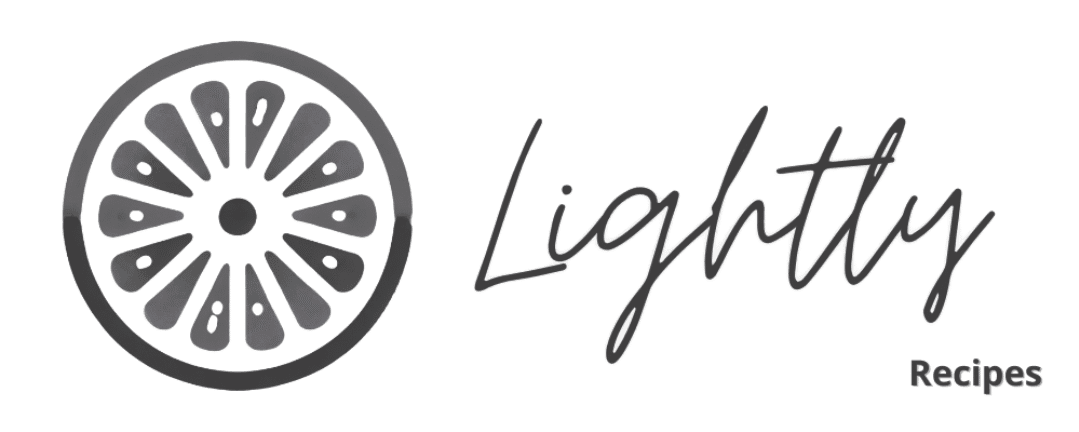Table of Contents
Is cinnamon vegetarian? Is cinnamon vegetarian? Cinnamon is a spice derived from the inner bark of Cinnamomum trees. This aromatic spice is available in both stick (quill) and ground forms. It is a versatile ingredient used in a variety of dishes, from baked goods to beverages. With its distinctive flavor and fragrance, cinnamon has become a staple in many households. But how can you be sure cinnamon is truly vegetarian or vegan? Let’s explore its source, production, and any potential non-vegetarian additives. But how can you be sure cinnamon is truly vegetarian or vegan? Let’s explore its source, production, and any potential non-vegetarian additives. For recipes incorporating cinnamon, check out these Cinnamon Sugar Muffins for a delightful treat.
The History of Cinnamon in Culinary Use
The history of cinnamon dates back over 4,000 years. Ancient Egyptians used it for embalming, while Greeks and Romans valued it for its medicinal properties. During the Middle Ages, cinnamon was a status symbol in Europe due to its rarity and high cost. As global trade expanded, cinnamon became more accessible and widespread in culinary practices. Therefore, this spice has been integral to various cultures, influencing desserts, beverages, and savory dishes.
Types of Cinnamon: Ceylon vs Cassia

There are two main types of cinnamon to consider:
- Ceylon Cinnamon (Cinnamomum verum): Known as “true cinnamon,” it is lighter in color and has a delicate, sweet flavor. It is ideal for desserts and lighter dishes.
- Cassia Cinnamon (Cinnamomum cassia): Darker and more robust in flavor, Cassia is the type most commonly found in grocery stores. It works well in bold-flavored recipes.
Incorporating cinnamon into your diet can elevate your culinary creations. For example, consider trying recipes like Matcha Muffins with Almond Flour for a healthy twist.
Understanding Vegetarianism
What Defines a Vegetarian Diet?
A vegetarian diet excludes meat, poultry, and fish. However, there are several variations to this diet:
- Lacto-vegetarian: Includes dairy but not eggs.
- Ovo-vegetarian: Includes eggs but not dairy.
- Lacto-ovo-vegetarian: Includes both dairy and eggs.
Therefore, a vegetarian diet focuses on plant-based foods like grains, fruits, vegetables, and legumes, making it flexible and adaptable to individual preferences.
Differences Between Vegetarian, Vegan, and Plant-Based Diets
- Vegetarian: Excludes meat, fish, and poultry but may include dairy and eggs.
- Vegan: Excludes all animal products, including honey and gelatin.
- Plant-Based: Primarily emphasizes whole, plant foods but may allow occasional animal products.
For more insights into healthy snacking alternatives, explore Rice Cakes Benefits and Recipes, which are great options for vegetarians.
Ethical and Health Reasons for Vegetarianism
People choose vegetarianism for various reasons. Ethical considerations include animal welfare and environmental sustainability. Health benefits of vegetarianism include lower cholesterol levels, better weight management, and a reduced risk of heart disease. Furthermore, environmental reasons include lowering greenhouse gas emissions and conserving water resources.
Is Cinnamon Vegetarian? Full Explanation for Vegans and Vegetarians
The Natural Source of Cinnamon: Is Cinnamon Vegetarian by Nature?
Cinnamon is derived from the bark of trees, making it entirely plant-based. Therefore, no animal products are used in its natural form. Cinnamon trees are grown primarily in Sri Lanka, Indonesia, China, and Vietnam. Because it comes directly from nature, pure cinnamon is inherently vegetarian.
The Harvesting Process of Cinnamon
The harvesting process of cinnamon involves peeling the inner bark from the branches of the Cinnamomum tree. The bark is then dried and rolled into quills or ground into powder. Moreover, this process is straightforward and does not use any animal-derived substances.

Does Cinnamon Contain Animal Byproducts? Is It Truly Vegetarian?
Pure cinnamon does not contain any animal byproducts. However, you should be cautious of processed or flavored cinnamon products, as they may contain additives like:
- Gelatin: Often found in coated products.
- Shellac: Used in confectioner’s glaze.
Cinnamon in Packaged Foods: Is Cinnamon Still Vegetarian?
While pure cinnamon is vegetarian, packaged foods that contain cinnamon (like pastries or cereals) might include non-vegetarian additives. Therefore, it is essential to always check ingredient lists. For instance, while pure cinnamon is safe, pastries might contain dairy, eggs, or gelatin. For delicious cinnamon-infused baked goods, try these Cinnamon Sugar Muffins.
Cinnamon and Cross-Contamination Risks
Factory Processing and Contamination Concerns
Cross-contamination can occur when cinnamon is processed in facilities handling non-vegetarian products. Therefore, to avoid this, look for brands that specify vegan or vegetarian processing methods.
How to Identify Pure, Vegetarian Cinnamon for Vegans
To ensure your cinnamon is vegetarian:
- Buy Whole Sticks: These are less processed and have a lower risk of contamination.
- Check Labels: Look for “vegan” or “vegetarian” certifications.
- Reputable Brands: Purchase from brands known for ethical and transparent practices.
Common Uses of Cinnamon in Vegetarian Diets
Baking and Desserts

Cinnamon is a key ingredient in many vegetarian desserts. From cookies to cakes, its warm, sweet flavor enhances baked goods. For example, try recipes like Cinnamon Sugar Muffins for a classic treat.
Beverages: Tea, Coffee, and Smoothies
In addition to baking, cinnamon adds flavor and health benefits to beverages. For instance, you can add cinnamon to:
- Chai tea for a warming drink.
- Lattes for a spiced twist.
- Smoothies with bananas for extra flavor.
Savory Dishes: Incorporating Cinnamon in Cooking
Cinnamon isn’t just for sweets. In fact, it enhances savory dishes like stews, curries, and soups. For more savory recipes, explore The Ultimate Chicken Dumpling Soup, which can benefit from a hint of cinnamon.
Health Benefits of Cinnamon for Vegetarians
Antioxidant Properties
Cinnamon is packed with antioxidants, which help combat oxidative stress and free radicals in the body. These antioxidants, such as polyphenols, protect your cells from damage and may reduce the risk of chronic diseases. Furthermore, regular consumption of cinnamon can contribute to a stronger immune system and overall well-being. To enhance your antioxidant intake, try incorporating cinnamon into recipes like Cinnamon Sugar Muffins or Matcha Muffins with Almond Flour.
Anti-Inflammatory Effects
In addition to its antioxidant properties, cinnamon also has potent anti-inflammatory effects. This is particularly beneficial for vegetarians who rely on plant-based foods to manage inflammation naturally. For instance, consuming cinnamon may help alleviate symptoms of arthritis or muscle soreness. Moreover, reducing inflammation in the body can improve overall health and lower the risk of chronic conditions such as heart disease.
Managing Blood Sugar Levels
Cinnamon is well-known for its ability to regulate blood sugar levels. Specifically, it improves insulin sensitivity and helps lower blood glucose levels. Therefore, it can be particularly useful for individuals with Type 2 diabetes or those looking to maintain stable energy levels throughout the day. Adding cinnamon to your morning oatmeal, smoothies, or baked goods is a simple yet effective way to harness these benefits.
Potential Risks and Allergies
Can Cinnamon Cause Allergic Reactions?
Although cinnamon allergies are rare, they can occur. Common symptoms include skin rashes, mouth irritation, and, in severe cases, difficulty breathing. If you are unsure whether you are allergic, start with a small amount of cinnamon and observe any reactions. Additionally, it is worth noting that Cassia cinnamon is more likely to cause allergic reactions than Ceylon cinnamon due to its higher coumarin content. For alternative baked goods, consider trying Matcha Muffins with Almond Flour.
Overconsumption of Cinnamon
While cinnamon offers many health benefits, consuming too much can lead to adverse effects. Cassia cinnamon contains high levels of coumarin, which may cause liver damage if consumed excessively. Therefore, it is best to limit your intake to no more than 1 teaspoon of Cassia cinnamon per day. On the other hand, Ceylon cinnamon contains significantly lower amounts of coumarin and is safer for regular consumption. If you’re looking for ways to incorporate cinnamon safely, explore recipes like Cinnamon Sugar Muffins.
Safety of Cassia Cinnamon vs. Ceylon Cinnamon
When deciding between Cassia and Ceylon cinnamon, it is important to understand their differences. Cassia cinnamon is more readily available and has a stronger, more pungent flavor. However, it also contains higher levels of coumarin, making it less suitable for frequent use. In contrast, Ceylon cinnamon has a milder flavor and lower coumarin content, making it the healthier option for regular use. Therefore, for everyday consumption, choose Ceylon cinnamon to minimize health risks.
Sourcing Ethical and Sustainable Cinnamon
Ethical Harvesting Practices
Ethical harvesting practices ensure that cinnamon is sourced in a way that respects both people and the environment. This includes fair wages, safe working conditions, and sustainable farming methods. Supporting brands that prioritize ethical harvesting helps improve the livelihoods of farmers and protects the environment. Moreover, ethical practices contribute to better-quality cinnamon for consumers.
Fair-Trade and Sustainable Certifications
When buying cinnamon, look for certifications that guarantee ethical and sustainable practices. These include:
- Fair-Trade Certified: Ensures that farmers receive fair wages and work under safe conditions.
- USDA Organic: Guarantees that the cinnamon is grown without harmful pesticides or chemicals.
- Rainforest Alliance: Focuses on environmental sustainability and responsible farming.
By choosing certified products, you are making a positive impact on both people and the planet. For more ideas on sustainable snacks, check out Rice Cakes Benefits and Recipes for Healthy Snacking.
FAQs About Cinnamon and Vegetarianism
Is Ground Cinnamon Vegetarian?
Yes, pure ground cinnamon is entirely vegetarian. However, it is essential to check the label, especially for flavored or blended products. Some additives may not be vegetarian-friendly. Therefore, opt for pure, single-ingredient cinnamon to be safe.
Can Vegans Eat Cinnamon?
Absolutely! Pure cinnamon is plant-based, making it suitable for vegans. It is a versatile spice that can be used in a wide range of vegan recipes, from desserts to savory dishes. For a vegan-friendly treat, try making Cinnamon Sugar Muffins.
Are Cinnamon Supplements Vegetarian-Friendly?
Most cinnamon supplements are vegetarian, but it is always best to check the label. Some capsules may contain gelatin, which is derived from animals. Therefore, look for supplements labeled “vegan” or “vegetarian” to ensure they meet your dietary needs.
How Do I Know if Cinnamon is Pure?
To determine if your cinnamon is pure:
- Check the Ingredient List: It should only list “Cinnamon” or “Cinnamomum.”
- Buy From Trusted Brands: Reputable suppliers are more likely to offer pure, high-quality cinnamon.
- Look for Certifications: Organic and Fair-Trade certifications ensure quality and ethical sourcing.
Is There Non-Vegetarian Cinnamon on the Market?
No, pure cinnamon is always vegetarian. However, cinnamon-flavored products might contain non-vegetarian additives like gelatin or confectioner’s glaze. Therefore, always read the label carefully.
Can I Substitute Cinnamon in Vegetarian Recipes?
Yes! If you need a substitute for cinnamon, consider using:
- Nutmeg: Offers a warm, nutty flavor.
- Allspice: Provides a blend of cinnamon, nutmeg, and clove flavors.
- Cardamom: Adds a sweet, spicy note.
For more substitution ideas, explore Almond Flour for All-Purpose Flour Substitutions.
Conclusion
Final Thoughts on Cinnamon for Vegetarians
In conclusion, cinnamon is a versatile and completely vegetarian spice that can enhance a wide range of dishes. Whether you are baking, making beverages, or preparing savory meals, cinnamon’s unique flavor and health benefits make it a valuable addition to your diet. Furthermore, by choosing ethically sourced and sustainable cinnamon, you support both farmers and the environment.
For more cinnamon-inspired recipes, try these Cinnamon Sugar Muffins or explore healthy snack ideas with Rice Cakes Benefits and Recipes.
Happy cooking, and enjoy your vegetarian journey with cinnamon!
